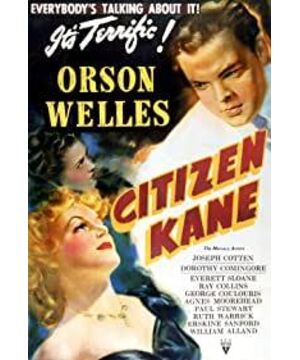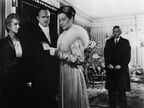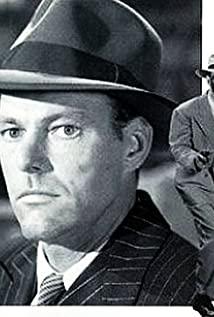"The Name of the Rose" ends with a rather ambiguous Latin phrase: "stat rosa pristina nomine, nomina nuda tenemus (the rose was famous in the past, but today it is only the name of the rose)." In this book, Aike first described the entity of the "rose", causing it to be destroyed along with the development of the story, and finally only the "rose" as a symbol remained.
"Citizen Kane" presents a different order of interpretation due to its interlaced structure of time and space: the intention of "rosebud" is proposed at the beginning of the whole film (and the audience does not know the specific object it refers to), and the exploration of its meaning is It's the thread that runs through the entire movie. Five interviewees offered five possible interpretations of Kane's recollection, but the reality of the intent was not finally revealed until the audience in the last shot saw Kane's youthful skis in flames.
The glass ball rolled from Kane's hand is often regarded as another form of rosebud. From this perspective, the film returns to the traditional structure of "substance-meaning-symbol". Callinger points out that, in a way, the glass ball fulfills that crucial metaphorical role even more than the snowboard: its shattering not only signifies Kane's death, but also signifies the so-called "Kane". The disintegration of the whole - this is also a metaphor for the narrative structure of the film. Just as the broken glass ball cannot be put back together again, the different aspects of Kane described by different interviewees cannot reflect the complexity and complexity of the person himself. Contradiction. What reporter Thompson is trying to accomplish is the restoration of the complete image of Kane, so is "Rosebud" the key link that unifies all the fragments and makes them "Kane"? Or is it just another aspect of Kane, and we are blocked by the "No Entry" sign from further exploration?
Returning to the ontology of "Rosebud", that is, Kane's childhood skis, the common interpretation is that it represents the past pure childhood, the absence of father and the anxiety of separation from mother, a more interesting view is that Rosebud To Kane what the green light of the harbour was to Gatsby—both are about the painful memories of the past foreshadowed by the happy prelude, and in order to escape this memory, Kane and Gatsby are gaining absolute power and money. Afterwards, they tended to build an ideal miniature world under their complete control (Kane's Shangdu and Gatsby's banquet), trying to make up for the fact that their past life was out of control with their absolute control over the surrounding space. This further reveals the connection between the "rosebud" and the glass ball: whether it is the cross-dissolving of the snow scene and Shangdu or the fisheye lens of the next glass ball, all point to the pointer of the miniature scene in Shangdu and the glass ball. generational relationship, and the glass ball slipping and shattering from Kane's hands symbolizes the loss of his desired control, as the snowboard with "Rosebud" written on it burns with the entire upper, this idealistic personal kingdom-- Both the physical and the symbolic - crumbled with Kane's death.
Coincidentally, the monastery in "The Name of the Rose" was also destroyed by a fire. In the book, Aike wrote about the War of the Roses, the rose window of the church, the rose-like girl Adesso met, and the rose-colored life—— By confusing readers with rich interpretations, making them unable to determine the specific meaning of the "rose" in the title, this is just to guide them to reflect on the excessive interpretation and pursuit of the meaning behind the symbol. When we try to talk about "Citizen Kane", it is extremely difficult to avoid the previous discussion, or the analysis of "Rosebud" in the past seems to have exhausted all possibilities. Perhaps this dilemma can be explained by Egyptian To answer with another sentence: "The only truth is to get rid of the irrational fanaticism of truth", when we are obsessed with exploring the meaning of "rosebud", we are only Thompson off-screen.
View more about Citizen Kane reviews











